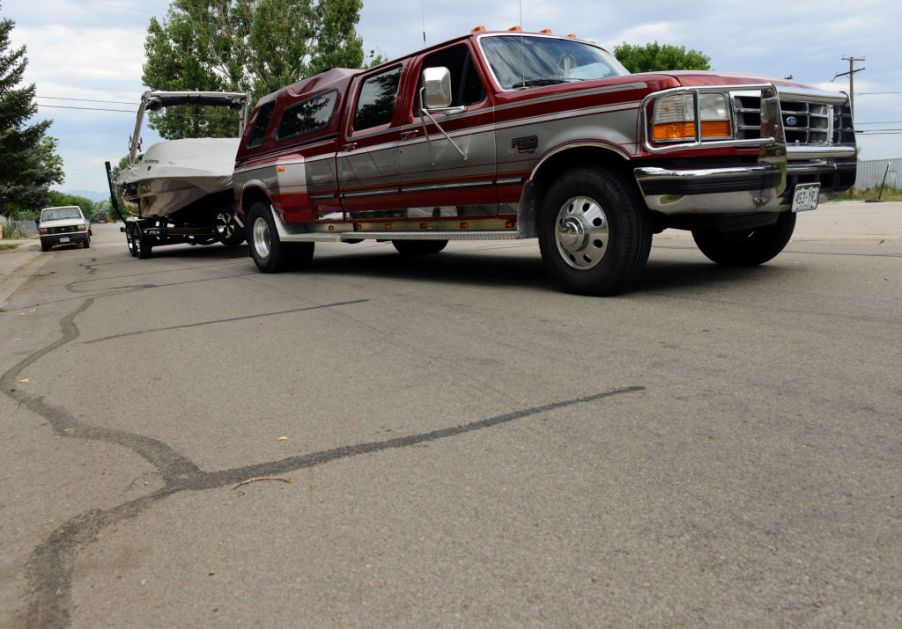
Does Towing Damage a Truck’s Transmission?
If you’re used to pulling a work trailer or family pontoon boat, you may have a good understanding about the various aspects that go into towing safely and preserving the health of your vehicle doing the towing. For those not used to towing, but who may be considering a truck to pull, you might have questions about best practices and avoiding damage. Even some towing veterans may be wondering, especially with the newer pickup models, does all that towing damage your truck’s transmission?
Towing is popular for work and play
Over the years, towing and hauling has transitioned away from being a function of work, to more of a lifestyle preference and capability. A workload that used to be exclusive to the construction site or the ranch is now a popular prerequisite for families too.
Of course, the working trucks designed to pull equipment effortlessly are still in high demand. But, the Jones’ and the Smiths’ need to haul their show ponies to the show, their jet skis to the lake, and their flat trailers for larger retail purchases.
While the dealership might educate this influx of consumers who are new to towing, how to do so safely and without damaging their trucks, some truck transmissions might be in jeopardy.
Towing can put a strain on your truck’s transmission
Towing heavier loads than your truck’s maximum tow rating suggests, will directly put added strain on the transmission. Another transmission-damaging factor is fluids.
During towing stress, the fluids in the engine heat up much like a pressure cooker. If the fluid levels are inadequate, towing will overwork the components and cause serious damage.
Uneven weight distribution can also damage your truck. If your trailer or pull-behind suffers an imbalance, whether it be one side over another, or front to back distribution, it can also cause dangerous trailer sway, along with overworking the engine.
How to avoid overworking your transmission
There are a few best practices you should embrace to preserve the truck’s transmission. Keep in mind, while some of these tips might seem general, overall, the goal is to take steps to help keep the engine and transmission from overworking.
Before you head out with the family camper, do a pre-trip inspection of operational components, including proper fluid levels. Check your tire pressure to prevent under or over-inflation. You may want to go ahead and check the hitches, brakes, and lights, too.
If towing is entirely new to you, don’t be afraid to practice before hitting the highway. Maneuver turns in a safe and unpopulated area, to better understand how to adjust to a shift in weight. Try to get a better idea of when to brake and avoid over-accelerating. Getting comfortable with hills and turns ahead of time can keep you from accidentally damaging your truck when you head out.
Manual vs. automatic transmission
Some experts suggest manual transmissions are often better on truck transmissions than automatics. But most popular truck models are automatic. For those with automatic trucks, avoid using cruise control altogether and monitor your acceleration.
Hitting the gas too quickly can also overheat your transmission. If your truck features an overdrive setting, know those gears are best used during cruising. Overdrive is not helpful during high torque conditions and can hinder hill-climbing.
Knowing the job before picking the truck
The best advice towing professionals will usually offer is to understand the job before you try to tow it. Know what kind of towing and workload you plan to do with your truck first.
You can then select the pickup that’s right for the job, and capable of handling your typical and desired loads. As you consider different models, make sure you know and understand towing ratings and payload capacities. Know your truck’s GVWR limits and maximums and compare to the types of tow loads you plan to pull.
Be safe when you hitch up and make sure you know what your truck transmission can handle. Being in the know now will prevent you from having to replace a transmission later.


